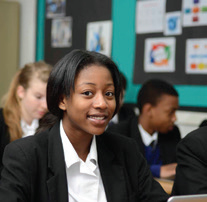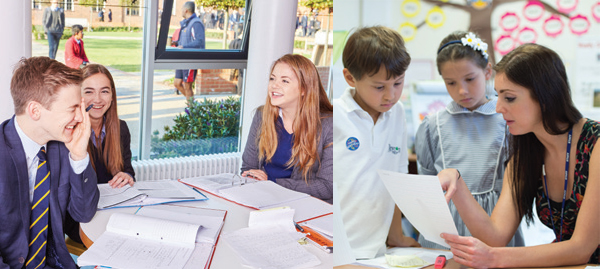Menu
EYES ON THE PRIZE – The pressure on children to achieve top grades and get into the right senior school and university is immense. It often translates into long hours of homework, says Gillian Upton.
 Stanford University psychologist Carol S Dweck is a big noise in educational psychology; she coined the phrases “fixed mindset” and “growth mindset” in her book, Mindset: The New Psychology of Success. Her theory is that those who believe that their success is based on innate ability have a fixed mindset and those who believe that their success is based on hard work have a growth mindset. The latter has greater capacity for improvement and, ultimately, success. Take this into the school environment and Dweck’s theories are powerful.
Stanford University psychologist Carol S Dweck is a big noise in educational psychology; she coined the phrases “fixed mindset” and “growth mindset” in her book, Mindset: The New Psychology of Success. Her theory is that those who believe that their success is based on innate ability have a fixed mindset and those who believe that their success is based on hard work have a growth mindset. The latter has greater capacity for improvement and, ultimately, success. Take this into the school environment and Dweck’s theories are powerful.
Alleyn’s School has done just that and when marking homework does not use the word “no” but “not yet” coupled with comments on how students can get further down the road with a subject. Alleyn’s Headmaster Dr Gary Savage explains: “The struggle is how you learn and the message is never to give up on a subject.”
Sydenham High School takes a similar approach. “We mark work proactively,” explains Head Teacher Kathryn Pullen, “using ‘WWW’ (what went well) and ‘EBI’ (even better if) with suggestions. Then the student has to respond to the teacher before they get a mark. We teach students that it’s OK to make a mistake – it’s part of learning.”
“THE STRUGGLE IS HOW YOU LEARN AND THE MESSAGE IS NEVER TO GIVE UP ON A SUBJECT”
Parents are an integral part of the homework process and Sydenham uses what’s called the “flipped classroom” approach via its virtual classrooms to help this partnership. “For example, students can watch a video at home, with their parents if they want, then the teacher’s time can be spent on exploration as well as explanation,” says Pullen.
Hornsby House Headmaster Ed Rees adds, “For many parents homework is an opportunity for them to stay connected with their child’s learning, the curriculum and their child’s strengths and weaknesses. The more fervent advocates of homework also argue that it supports, and possibly increases, a child’s chances of gaining a place at their senior school of choice.”
What can’t be avoided is homework itself. That there is a need for it is not disputed as learning at school is never enough and children have to consolidate learning at home. Ofsted recognises homework as an opportunity for independent learning.

Gone are the days when homework was just a few words or times tables to learn. Today it’s written work, even at primary level. State primary schools in particular increase homework levels at Key Stage 2 (ages seven to 11). Hornsby House takes a gentle approach, with progressively more homework as pupils move up the school but none at weekends. “A gentler homework is built into the middle of the week to give the children and their families some time out from what is for many a very busy life,” says Rees.
The government scrapped homework guidelines under Michael Gove so schools set an age-appropriate amount plus an adjustment for the individual child. The old government guidelines are still loosely followed: for years 1 and 2 (five to seven years), ten minutes of homework a night; years 5 and 6 (nine to 11 years), 30 minutes; year 7 to 9 (12 and 13 years), up to 90 minutes; years 10 and 11 (15 and 16 years), up to two-and-a-half hours. “A good teacher knows when the levels need to be adjusted,” says Dr Savage.
Exam pressure ratchets up the need for revision and schools’ pastoral staff need to support students at this stressful time. From this September, Alleyn’s teachers will be trained in “mental first aid” to help equip pupils to deal with exam pressure. “GCSEs are only part of education,” says Dr Savage. “It’s important that we don’t lose sight of holistic education. If we do, the kids certainly will. If an exam doesn’t go well, they can bounce back. It’s about all they do, not what they do in tests.”
LEARNING HOW TO LEARN
Sydenham High School teaches independent learning and study skills – metacognition or, more simply, learning how to learn. Children need to feel comfortable taking calculated learning risks and exploring different avenues to getting it right. Get them away from thinking that their exercise book has to be perfect. Pick up on their strengths and provide signposts for where to go next. Public exams are now linear, so no more modules or coursework but end-of-course exams. It’s important to teach students that exam success is a skill which can be learnt. Armed with the sense of being in control of their learning, pupils find that exams become a more proactive, less frightening prospect.
Source: Sydenham High School